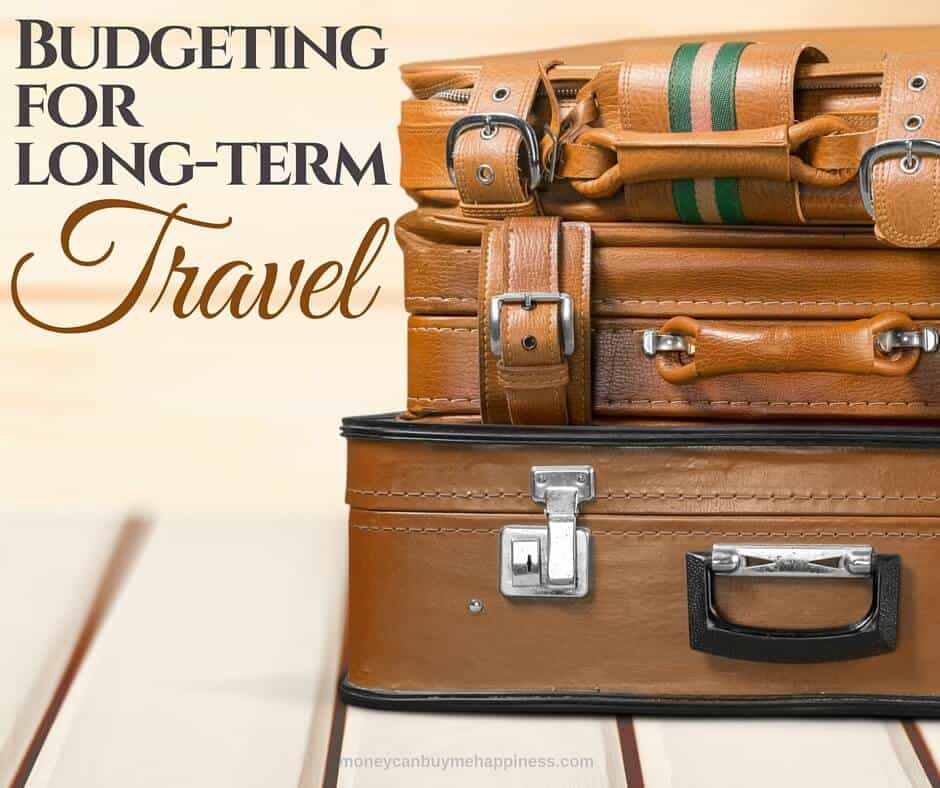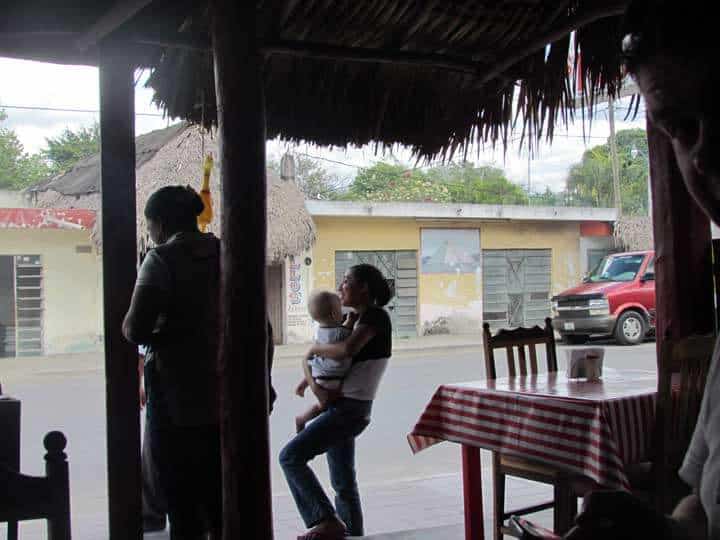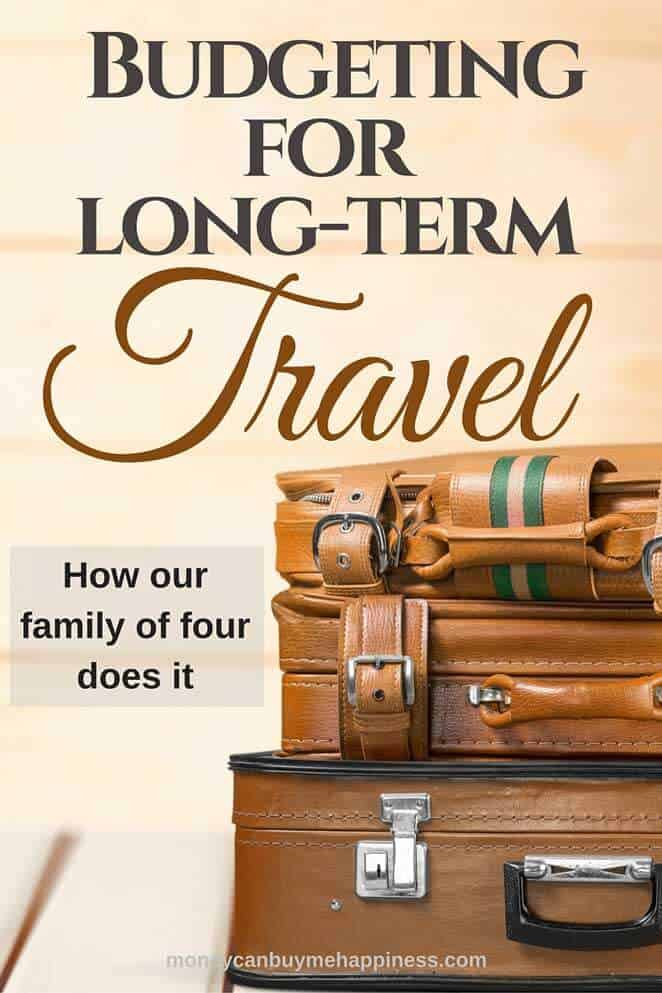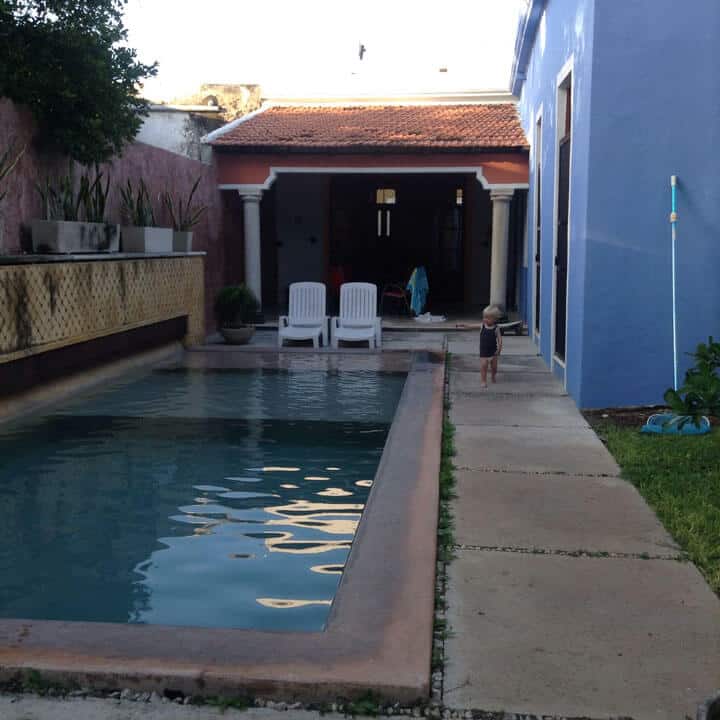At some point in your life, you may have dreamed of taking an extended break. Renting a local beach house and learning Spanish with your kids in Costa Rica.
Or spending months traversing Europe by train. Long-term travel allows for a richer experience, whereas short holidays barely touch the sides.

I’ve circumnavigated the globe three times, always on a minuscule budget. Most recently, I returned from 15 months traveling from New Zealand to the U.S., Mexico then to Europe and North Africa with my husband and young son.
Right now, I’m in the midst of planning for our next long-term adventure, with a new baby in the mix. All this is to say, by now I have a good idea of how to pull together a travel budget to ensure maximum value for money.
Long-term travel does involve a lot of planning, but budgeting for long-term travel isn’t as hard as it might seem.
Here’s how we do it:
Plan and research fixed costs
You have the same basic needs when you are traveling as you do at home. We budget a per day amount for accommodation, food and transport which can all be researched and planned for.
Accommodation
Hostels
When we travelled as a couple to South America in 2011 we knew we could handle basic accommodation. It had to be clean but we didn’t need luxury.
With that in mind, I focused on hostel booking sites such as hostelworld and hostelbookers to get an idea of prices. I then put together a rough estimate of per night accommodation costs for each country.
We then knew what we could expect to pay online, and could usually secure a large discount on the price by booking directly with the hostel owner either by email or from just showing up and asking for a room.
Apartments
Now that we are a family we travel a little differently. We tend to rent apartments or houses so we can have a kitchen and somewhere to chill after the kids have gone to bed.
This makes budgeting for travel even simpler, as we almost always stay for at least one month in order to secure monthly rates (often 50-70% cheaper than daily or weekly rates).
We use Airbnb, Homeaway, VRBO and Booking.com to book long stay apartments and usually aim for a total monthly rate of around $1000 or less.
After this is done I estimate a daily accommodation rate and then multiply it by the number of days we’ll be traveling.
Food
Sites like numbeo make it easy to figure out how much you’ll spend on groceries in your new destination. If you’re planning on visiting multiple destinations, you’ll need to plan a little further ahead (love these tips!)
I like to check out the websites of local supermarkets (cause I’m a nerd). If you like to eat out a lot you’ll get a good indication of how much meals cost on travel forums.
We usually eat out a few meals a week when we are traveling, but the majority of the time we cook at home as it’s easier with kids (and one of the easiest ways to lower costs when traveling).
When we do eat out in cheaper countries, its almost always lunch at the local market or a small local restaurant. And street food, always street food.
If we’re in more expensive locations like Sydney, we tend to choose buffets or easy family-friendly options to stretch the food budget (check out this list of kid-friendly buffets in Sydney, some real bargains there!)
Plus, we find places like these to be much more informal which suits our crazy kids better.

In our experience cooking from scratch with the staples – fresh fruits, veggies, ground beef, stock, flour etc – is possible in most locations in the world, especially those with local markets.
This means we can pretty much replicate what we eat at home when we are away without having to navigate new brands in each destination.
Food is harder to estimate a daily spend for, so I try to work with a figure much like my weekly grocery spend at home. Then we allow for meals out on top of that grocery amount.
Travel slow
Slow travel is becoming more and more popular as people move to more flexible online jobs or build their own businesses. Location independence is the ultimate goal for a lot of people these days.
Traveling slowly also helps you keep your travel spend down.
3 reasons why slow travel is good for your travel budget:
1. You don’t move about as much so major transportation costs are reduced
2. You can space out visiting major attractions as you have more time. This means you can visit on slow days (weekdays and school term time) and take advantage of off-peak discounts or even free days offered by some museums and art galleries worldwide
3. You get cheaper accommodation! This is the biggie. Often private accommodation providers such as condo or apartment owners would prefer to secure a long-term booking at a discounted rate to avoid vacancy.
Our apartment in Spain rented for up to €400 euro per/week yet we were able to secure a 5-month rental for only €592 per month. Yep, that’s right, paying for monthly rentals cost less than 2 weeks of rent.
Don’t book too far ahead for flights, hotels or cruises.
The beauty of slow travel is your ability to be flexible – this means you can react to an overspend by lying low for a while and stretching your funds.
Or you can splurge on a last-minute cruise deal at 80% off. We were able to secure a bargain on a balcony cabin on a Mediterranean Cruise by being flexible.
We knew we wanted to do a cruise but we weren’t prepared to pay full price as our budget just couldn’t stretch to it. I subscribed to a bunch of emails from cruise providers and finally pounced just one month before our desired trip.
We cruised from Spain to France, Italy and Tunisia before circling back to Spain. 7 days of pure luxury for under $200 per night.
To counter spending that much (it was a bargain but still a big amount for us) I searched the surrounding area of the arrival port to find a budget apartment to spend the following weeks in.
That’s how we ended up in a town we’d never heard of before which ultimately became one of our favorite destinations.
I really struggle with not booking too far in advance because I feel like making a booking brings the trip to life. But, there are savings to be had if you show a bit of self-control and book last-minute.
I only allow myself to book the first departing airfare in advance. After that, it’s all about the hustle to save cash. We budget a ‘fun’ amount each month that we can blow however we like. It’s this money we use for cruises and last-minute weekend jaunts.
Geographic arbitrage
We almost always travel to cheaper countries where our currency goes further (this strategy is called geoarbitrage).
With the exception of Ireland where we have free accommodation or Spain which uses a stronger currency but still has a lower cost of living than our home country.
This is a choice we have made so we can travel for longer. Whilst I’d love to travel to Scandinavia, I know that one week of traveling there would equal a month in a cheaper country.
Plus, we have to save some of those expensive destinations for when we are older and not traveling with kids (or they can pay for themselves :-))
Pay upfront in advance for large expenses such as travel insurance
One thing I do book as soon as I have my airfare secured is book travel insurance with World Nomads.
That way I’m protected if the airline cancels my fare or something happens in the lead up to the trip that means I can’t travel on the booked flight.
How we ensure we don’t run out of money
Once we’ve pulled together all of the necessities and left an amount over for splashing out on last-minute trips including cruises we have a pretty solid travel budget in place.
We then budget exactly the same we would at home. At the beginning of the month, I transfer our monthly allocation into either our travel account with our home bank or transfer to our European bank account using Wise if we are in Europe.
We withdraw most of our funds in cash for spending, to keep currency conversion fees down (if using the credit card).
We negotiated with the owner of our long stay apartment in Spain to pay rent monthly, just as a local would.
Going to the bank to make the deposit each month was just another opportunity to practice our Spanish, plus it kept the budget on track.
The one thing that really slowed down our spending when we were living in Spain was to track our spending. Now I track everything.
It’s become a habit and I think it’s even more important to track spending when you’re traveling.
I find it easier to reign in my spending at a new destination than I do at home. Simply because just leaving your front door is an adventure – and walking doesn’t cost a thing.
What if a disaster occurs?
We have a $20,000 limit on our credit card which is enough to get us on last-minute flights if we ever need to. That’s about the extent of our travel emergency fund. A high credit card limit and good travel insurance.
Long-term travel can actually be cheaper than living your regular life at home. You can forecast almost all of your expenses before you even leave home, and react to overspends by lying low in a budget destination until your funds recover.
It’s easy to keep costs down when you travel – even exploring the neighborhood or having a picnic at a nearby park is fun when you are in new surroundings, plus they don’t cost much.
By traveling slowly to cheaper destinations, you’ll be able to stretch your travel budget for longer and explore more of this amazing planet.
This article was originally posted here


